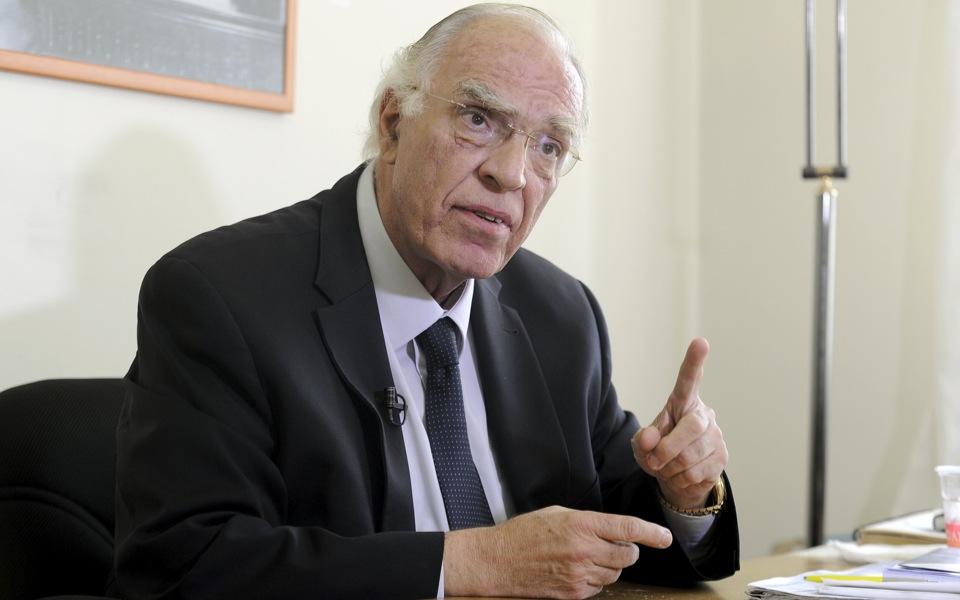‘Heretic’ of Greek politics eyes return from wilderness

A civil engineer and one-time aspiring musician who claims to have had the foresight to predict Greece’s financial crisis 25 years ago is making a dent in mainstream parties’ support before national elections.
Tapping into frustration at years of economic hardship and broken promises, Vassilis Leventis’s Union of Centrists is polling between 3.5 and 4 percent of the electorate, giving it a foothold to win seats in Greece’s 300-member parliament in Sunday’s vote.
With little visibility in nationwide media, Leventis has gained a following with appearances in smaller outlets over the years and by publishing his own newspaper, railing against an establishment he says has ‘poisoned’ Greece.
Having flown so long below the political radar, he has attracted relatively little attention from political opponents. But he believes the polls are wrong, and his party will get closer to 7 percent.
"Generally in Greece there is an elite which was created by PASOK and New Democracy, which is sucking the lifeblood out of the country, while everyone else is suffering," Leventis told Reuters, referring to the two big traditional parties.
A founder member of the socialist PASOK which dominated Greece for decades, Leventis said he was soon disillusioned with established politics, refusing to pitch his tent anywhere.
He established the Union of Centrists in 1992, seeking election in various polls but never getting anywhere. In the last parliamentary election, in January 2015, his party scored 1.79 percent.
"I am a politician but I have always been a heretic," said Leventis, a 63-year-old civil engineer by training.
At university, he funded the recording of his own ballad music, but politics beckoned instead. His gloom and doom scenarios of the fate that would befall Greece’s economy go back, he says, as far as 1990.
"I had said from then that if all Greeks continued to dodge their taxes, wanted their children to get public sector jobs with pensions at 40, and appointments based on who you knew, the country would not survive for long."
As he speaks in an office above a central Athens square, with the ubiquitous religious icon in a corner, the words ‘rousfeti’ and ‘meso’ crop up frequently.
One means cronyism, the second the pulling of strings, normally to land a well-paid public service job.
It is that culture which outsiders largely blame for Greece’s economic malaise, forcing the nation into three international bailouts since 2010. The country flirted with bankruptcy earlier this year.
"Rousfeti has destroyed many generations," he said.
Leventis said he would attempt to do away with bailouts by removing ‘pathogens’ afflicting the public sector.
He reels off the numbers; 330,000 Greeks are drawing three different pensions a month, 400,000 of them draw pensions yet still work, 12,000 people in the public sector get paid for doing next to nothing, while 1,500 people related to politicians work in the country’s parliament.
"We also have 280,000 people who have taken early retirement, 40- and 50-year-olds sitting in coffee shops."
He wants to introduce a national retirement age of 65.
Leventis says the economy won’t get back on its feet just from cutbacks. He is proposing an extension of maturities on debt repayments which would save Greece billions, and incentives to repatriate an estimated 120 billion euros in deposits which took flight from the Greek banking system from 2012.
He is pitching his appeal towards younger voters, believing that the older generation has been tinged by the system.
"Greece has been turned into a cemetery," he says.
"Nowadays young people are poisoned. That is why they are voting for me."
[Reuters]





